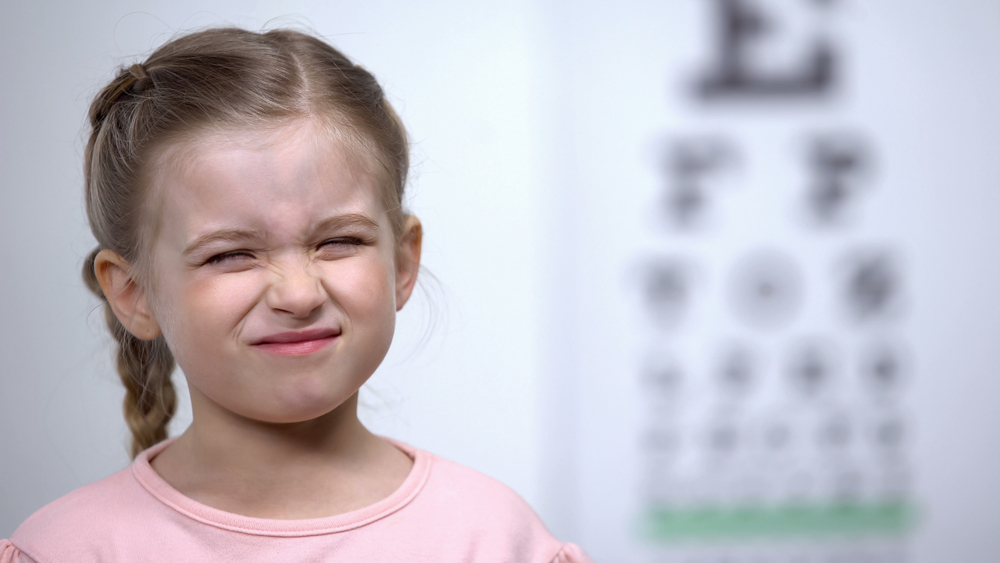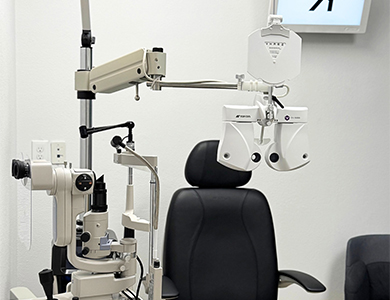
Myopia, or nearsightedness, is becoming increasingly common among children and teens, making it one of the most significant vision challenges of our time. What’s more concerning is that unchecked myopia can lead to more serious eye health problems later in life. This makes myopia control not just important, but critical - especially for children whose eyes are still developing.
Understanding Myopia
Myopia occurs when the eye grows too long from front to back, or when the cornea is too curved. This structural change causes light rays to focus in front of the retina instead of directly on it, resulting in blurry distance vision. Myopia typically develops during childhood and can progress rapidly if not properly managed.
Why Is Myopia Control Critical?
While glasses or contact lenses can correct blurry vision, they do not address the underlying progression of myopia. High levels of myopia significantly increase the risk of sight-threatening eye conditions later in life, such as:
• Retinal detachment
• Glaucoma
• Cataracts
• Myopic macular degeneration
The higher the degree of myopia, the greater the risk of developing these complications. Controlling myopia progression in childhood helps protect lifelong vision and reduces the chance of severe eye health issues in the future.
The Role of Regular Pediatric Eye Exams
Early detection and ongoing monitoring are key to effective myopia management. Regular pediatric eye exams play a vital role by allowing optometrists to spot vision changes before they significantly impact a child’s daily life or academic performance.
These exams also make it possible to monitor progression, tracking changes in your child’s prescription over time and identifying any signs of rapid advancement. With this information, optometrists can develop personalized treatment plans. Every child is unique, and an individualized approach ensures the most effective management and the best possible outcomes. Advancements in optometry have provided several proven methods to slow the progression of myopia in children and teens.
Atropine Eye Drops
Low-dose atropine eye drops are a safe and effective treatment for slowing myopia progression. When used nightly, these drops can help reduce the eye’s rate of elongation, with minimal side effects. Atropine eye drops are easy to administer and well-tolerated by most children, making them an excellent option for long-term myopia management.
Orthokeratology (Ortho-K)
Ortho-K involves wearing specially designed rigid contact lenses overnight to gently reshape the cornea. This provides clear vision during the day without the need for glasses or contacts, while also helping to slow down myopia progression. Ortho-K is a non-surgical, reversible treatment that has become increasingly popular for active children and teens, allowing them to participate in sports and other activities without the inconvenience of daytime eyewear.
Multifocal Contact Lenses or Glasses
Specially designed multifocal contact lenses or glasses work by focusing light in a way that reduces the stimulus for the eye to grow longer. This approach has been shown to effectively slow myopia advancement while providing sharp, comfortable vision correction. Multifocal lenses are available in both contact lens and eyeglass options, giving families the flexibility to choose the method that best fits their child’s lifestyle and vision needs.
Get Started with Myopia Control at Focal Optometry
Myopia is a progressive condition with significant long-term risks if left unmanaged. Taking steps to control myopia in childhood not only improves daily quality of life but also safeguards eye health for years to come. At Focal Optometry, we are committed to providing advanced myopia management through early detection, personalized treatment, and ongoing care.
If your child has myopia or you want to learn more about myopia control options, schedule an eye exam at Focal Optometry today. Contact our office in San Diego, California, by calling (858) 330-4200 to book an appointment.









